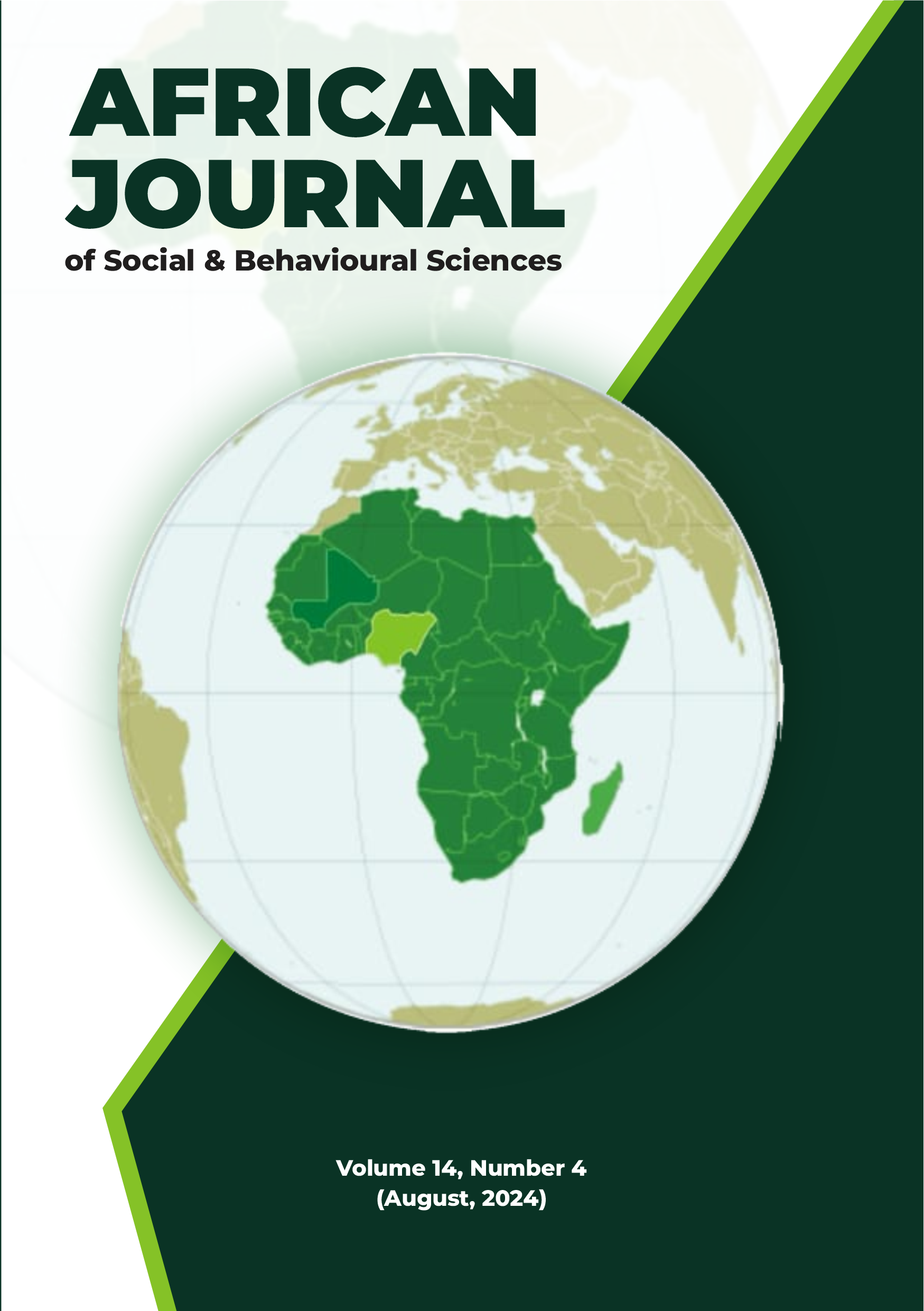IMPACT OF SOCIAL SUPPORT AND SELF-EFFICACY IN PREVENTING SUBSTANCE ABUSE AMONG ADOLESCENTS AT BORSTAL TRAINING INSTITUTION BARNAWA, KADUNA STATE
Keywords:
Social Support, Self-Efficacy, Substance Abuse, Borstal Training Institution BarnawaAbstract
This study investigated the impact of social support and self-efficacy on substance abuse among adolescents at the Borstal Training Institution Barnawa, Kaduna State. The study employed a cross-sectional survey design, utilizing a simple random sampling method to select 137 male adolescents aged between 16 and 17 years, with a mean age of 16.5 years. Three instruments used in this study include the Multidimensional Scale of Perceived Social Support (MSPSS), the Drug Abuse Self-Efficacy Scale (DASES) and the Drug Abuse Screening Test (DAST-10). Three hypotheses were tested using multiple linear regression analysis. Results found that social support has a partly significant influence on substance abuse among adolescents at Borstal Training Institutions. Social support was found to significantly affect adolescents (F (3, 123) = 5.216, p = .002). However, when looking at specific types of support, only support from friends (β = -.159, p = .068) showed a statistically significant influence. Support from family (β = -.102, p = .532) and significant others (β = -.190, p = .240) did not show significant effects on substance abuse. Additionally, the study revealed that self-efficacy significantly influences substance abuse among adolescents at Borstal Training Institution (F (4, 122) = 22.332, p < .001). Factors such as social pressure (β = -.275, p = .002) and physical and other concerns (β = -.227, p = .049) were statistically significant predictors.
Negative affect (β = -.200, p = .062) showed a marginally significant influence, while cravings and urges (β = -.068, p = .488) did not significantly predict substance abuse. Lastly, the findings from multiple regression analysis confirmed that both social support and self-efficacy together have a significant joint influence on substance abuse among adolescents (F (7, 119) = 13.213, p < .001). This study revealed that social support and self-efficacy are important protective factors against substance abuse, and support from family and significant others did not have a significant influence. The study recommends implementing targeted programs within institutions aimed at enhancing social support networks and bolstering adolescent self-efficacy to effectively prevent substance abuse.


